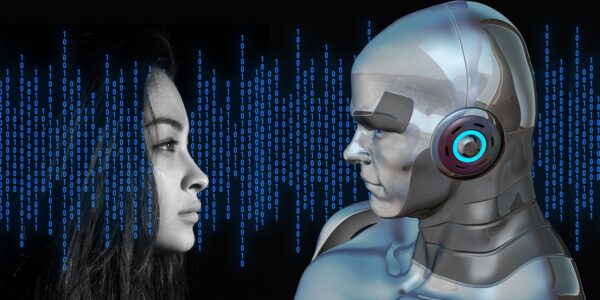Introduction
The term artificial intelligence describes a field in computer science that refers to computers or machines being able to simulate human intelligence to perform tasks or solve problems. Within our lifetimes, artificial intelligence (AI) will have altered our world more significantly and faster than any other technology since the discovery of electricity.
New Technology
Whenever new technologies seem likely to influence today’s cultural, the community always start making wildly predictions like the one about the smartphone from former Intel CEO Andy Grove “The idea of a personal communicator in every pocket is nothing more than a pipe-dream fueled by greed.” Andy Grove, CEO of Intel, 1992. Some of the worst tech predictions in the past 100 years include:
- The President of Western Union in 1876 saying, “This ‘telephone’ has far too many shortcomings to be taken seriously as a means of communication. It has objectively no value.”
- The President of the Michigan Savings Bank telling Henry Ford’s lawyer in 1903 that, “The automobile is a fad, a novelty. Horses are here to stay.”
- Film producer and 20th Century Fox movie executive, Darryl Zanuck stating in 1946 that, “Television will never hold onto an audience. People will very quickly get bored of staring at a plywood box every night”.
- Remote shopping, while entirely feasible, will certainly flop. It has no chance of success. “Time Magazine, 1966.”
- There is no reason an individual would ever want a computer in their home. “Ken Olsen, founder of Digital Equipment Corp, 1977.”
- Mobile phones will absolutely never replace the wired telephone. “Marty Cooper, inventor of the mobile phone, 1981.”
- Fooling around with alternating current (AC) is just a waste of time. Nobody will ever use it. “Thomas Edison, famous inventor and holder of more than 1,000 patents. 1889.”
- The automobile is a fad, a novelty. Horses are here to stay. “The President of the Michigan Savings Bank advising Henry Ford’s lawyer, Horace Rackham, not to invest in the Ford Motor Company; 1903.”
Interesting how technology…new technology is so quick to dismiss.
What Does AI Stand For?
AI stands for Artificial Intelligence (AI) and its capabilities are hard to keep up with because the field is rapidly advancing.
The artificial intelligence meaning is all about the possibility of machines that can reason and learn on their own. AI has already started playing a major role in tasks such as healthcare, transportation, and finance. Its capabilities allow it to make decisions like those a human brain might make, but at a much faster rate by analyzing large amounts of data in a short period of time. This gives AI the potential to detect and predict diseases, revolutionize traffic conditions, and optimize stocks effectively. AI can also offer greater accuracy which can improve processes and raise efficiency levels significantly.
AI At It’s Simplest Form
At its simplest form, AI is a new field, which combines computer science and robust datasets, to enable problem-solving. It also encompasses sub-fields of machine learning and deep learning, which are frequently mentioned in conjunction with artificial intelligence. These disciplines are comprised of AI algorithms which seek to create expert systems which make predictions or classifications based on input data.
Over the years, artificial intelligence has gone through many cycles of hype, but even to skeptics, the release of OpenAI’s ChatGPT seems to mark a turning point.
The applications for this AI technology are growing every day, and we’re just starting to explore the possibilities. But as the hype around the use of AI in business takes off,
conversations around ethics become critically important.
Ethics
What Are the 4 Types of AI?
Artificial intelligence can be categorized into one of four types.
- Reactive AI uses algorithms to optimize outputs based on a set of inputs. Chess-playing AIs, for example, are reactive systems that optimize the best strategy to win the game. Reactive AI tends to be fairly static, unable to learn or adapt to novel situations. Thus, it will produce the same output given identical inputs.
- Limited memory AI can adapt to past experience or update itself based on new observations or data. Often, the amount of updating is limited (hence the name), and the length of memory is relatively short. Autonomous vehicles, for example, can “read the road” and adapt to novel situations, even “learning” from past experience.
- Theory-of-mind AI are fully-adaptive and have an extensive ability to learn and retain past experiences. These types of AI include advanced chat-bots that could pass the Turing Test, fooling a person into believing the AI was a human being. While advanced and impressive, these AI are not self-aware.
- Self-aware AI, as the name suggests, become sentient and aware of their own existence. Still in the realm of science fiction, some experts believe that an AI will never become conscious or “alive”.
Conclusion
Artificial Intelligence is one of the most defining developments coming out of the 21st century because it is shaping the way humans do anything and everything.
More new technologies are being accelerated by AI, and the market for new iterations and ideas in which AI can improve the daily lives of humanity is immense.







